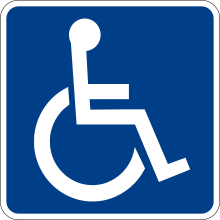Disability
 Disability is a hard subject to explore, especially within a short music video where the director's methods of portraying a narrative are very limited.
Disability is a hard subject to explore, especially within a short music video where the director's methods of portraying a narrative are very limited.
It's not that producers and artists are worried that the 'Disabled Community' will be outraged or want to boycott any video made representing them. Rather, the difficultly of portraying this means it's not really been touched upon.
We're able to analyse this music video thanks to the intertextuality of incorporating exaggerated, disabilities and conditions.
Staying true to the original comic book sources the main characters have many features that represent and explore the ideas of disability. Harley Quinn is shown as mentally insane, a condition rare in real life but unfortunate for the victim and all those around them. Killer Croc and his mutated, crocodile like skin, is a strong metaphor for ordinary people with skin conflictions. This has obviously been exaggerated through fiction but the emotions and consequences of looking different and forced to live away from society because of his defect portrays real disability.
Thanks to referring to the movie, by using clips from it, 'Heathens' is able to take from another media form that's capable of portraying certain types of disability in a sophisticated and relatable way.
 The characters with these disabilities are shown and made sympathetic by there imprisonment. Another example of how they sympathetically represent these disabilities is in when Will Smith's 'Deadshot' is introduced we see the action from his point of view (P.O.V) and his motives, wanting to look after his young daughter before being arrested.
The characters with these disabilities are shown and made sympathetic by there imprisonment. Another example of how they sympathetically represent these disabilities is in when Will Smith's 'Deadshot' is introduced we see the action from his point of view (P.O.V) and his motives, wanting to look after his young daughter before being arrested.https://www.youtube.com/watch?v=UprcpdwuwCg

No comments:
Post a Comment